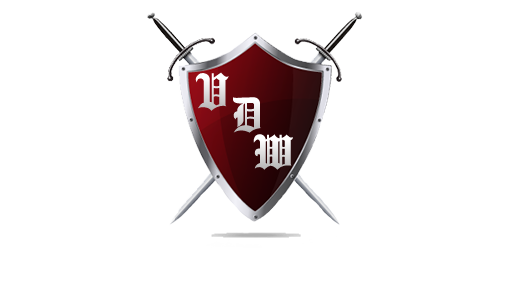Disability Discrimination
The Americans with Disabilities Act of 1990 (ADA)
If you are disabled, you have the right to legal protection against discrimination and harassment based on disability. The ADA is federal law that offers protection, and for disabled government employees, the Rehabilitation Act of 1973 also has the purpose of preventing disability discrimination and harassment.
The Van De Water Law Firm, P.C. has extensive knowledge and experience dealing with the nuances of disability discrimination law and can assist you in protecting your rights.
ADA Questions
What determines whether you have a disability?
The ADA determines that anyone is disabled who has a physical or mental disability that limits one or more life activities. Documented impairment, such as a medical practitioner’s statement that you are disabled qualifies you as disabled. Also, if your employer views you as disabled, whether you meet the other two qualifications for being disabled or not, then you qualify for protection under the ADA.
What health conditions could be perceived as a disability?
A pregnant woman may be under doctor’s orders not to lift heavy objects or have other health restrictions to abide by during pregnancy. In New York, when a worker is temporarily disabled due to an accident but has returned to work, protections against disability discrimination would also apply, even if the impaired condition were not permanent.
How does the ability to perform job functions apply?
Language in the ADA uses the term “otherwise qualified,” which basically says that if you can perform the functions of a job with or without reasonable accommodation, you are otherwise qualified to do the job. The employer cannot deny you a job if you are otherwise qualified. However, if you cannot do the essential job functions even when reasonable accommodations are made, then job denial is not discriminatory.
What does it mean that the employer must make reasonable accommodations?
Reasonable accommodations would include adjustments that make it easier for a disabled person to do a job. Examples include wheelchair ramps, a color-coded filing system, granting additional preparation time, job restructuring, accessible door handles, providing magnifiers and high tech accommodations such as screen reading software with synthesized speech.
Under a recent NYC civil rights law that went into effect October 15, 2018, when an employee requests a workplace accommodation based on a disability, the employer must engage in cooperative dialogue with the employee to discuss the request. The dialogue can consist of oral or written communications.
How do protections for disabled individuals under New York law differ from the ADA?
Under the ADA, to file a disability claim with the EEOC, your employer must employ 15 or more employees. However, if the company has four to 14 employees, you can file a complaint in New York State with the New York Division of Human Rights. If you live in New York City, you can file your complaint with the New York City Commission on Human Rights.
Unless employers would experience significant difficulty or undue hardship, they must provide a disabled worker reasonable accommodations if requested.
Another legal difference exists under federal and NYC disability law. Under the ADA, the claimant bears the burden of proving the ability to do the essential job functions with or without reasonable accommodations. However, under NYC Human Rights Law, the employer must prove that that claimant could not perform the essential functions due to disability.
What forms can disability discrimination take?
Discrimination can be in the form or not hiring you, not promoting you, denying you benefits, firing you, paying you lower wages or subjecting you to harassment based on your disability.
What is disability harassment?
Much like other instances of harassment based on a protected class, disability harassment is more than teasing or an infrequent comment. It must be frequent or severe enough to create a hostile work environment. Joking, making degrading comments, social slurs, gestures and other behavior that is discriminatory falls under disability harassment.
Our Practice Areas
Get Legal Help with Disability Discrimination
If you believe your employer or a potential employer discriminated against you based on your disability, schedule a free consultation with our firm to find out how we can help.
Call (631) 923-1314 or contact us online today.
Follow Us:
Do You Need Legal Help?
Arrange a Free Consultation
PRACTICE AREAS NAVIGATION

Garden City Center
100 Quentin Roosevelt Blvd.
Suite 208
Garden City, NY 11530
PRACTICE AREAS NAVIGATION

Garden City Center
100 Quentin Roosevelt Blvd.
Suite 208
Garden City, NY 11530
